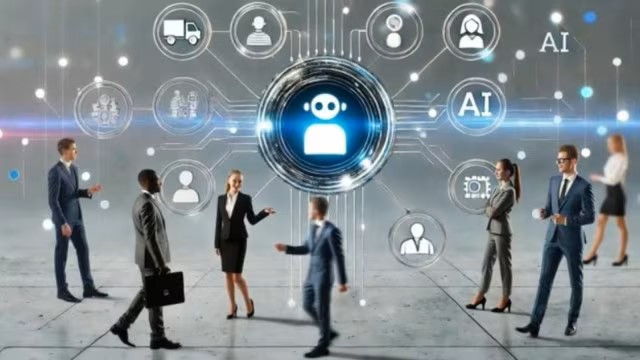
New Yale Study Finds AI Has Minimal Impact on US Job Market

 :
| Updated On: 07-Oct-2025 @ 4:21 pm
:
| Updated On: 07-Oct-2025 @ 4:21 pmSHARE
A recent study conducted by Yale University, titled “Evaluating the Impact of AI on the Labor Market: Current State of Affairs,” has provided surprising insights into the effects of artificial intelligence (AI) on employment in the United States. The study reveals that despite widespread concerns surrounding AI, particularly generative AI tools like ChatGPT, the broader U.S. labor market has not experienced any discernible disruption since ChatGPT’s release in late 2022. This finding is particularly noteworthy given the extensive public discourse and media narratives suggesting that AI would lead to significant job displacement across multiple sectors.
The Yale study stands in contrast to the emerging body of research conducted over the past three years that has focused on the potential risks of AI adoption. Since the introduction of generative AI technologies, many studies have raised alarms about their possible impact on employment, predicting mass layoffs, increased unemployment, and structural shifts in the workforce. These projections created a pervasive anxiety among policymakers, businesses, and workers, with discussions centered around whether AI would render human labor obsolete in certain industries, particularly those involving routine, repetitive, or data-driven tasks.
However, the Yale analysis challenges these assumptions by providing empirical evidence suggesting that, at least in the immediate aftermath of ChatGPT’s launch, such widespread disruption has not materialized. The study emphasizes that while AI tools have undoubtedly changed how work is performed in specific domains—enhancing productivity, automating certain tasks, and assisting professionals with content generation or decision-making—they have not yet resulted in mass job losses or notable increases in unemployment across sectors. In other words, the labor market continues to operate largely as it did prior to the introduction of generative AI.
One of the key takeaways from this research is that fears of AI-induced job displacement may be overstated in the short term. While AI adoption is accelerating and holds the potential to transform the workforce in the long run, immediate catastrophic impacts have not been observed. The study highlights that AI is currently being leveraged more as a complementary tool rather than a replacement for human labor. Many organizations are integrating AI to support employees, streamline workflows, and improve efficiency rather than eliminate jobs outright.
Moreover, the study draws attention to the complexity of measuring AI’s impact on employment. Employment trends are influenced by a multitude of factors, including economic cycles, labor policies, and sector-specific dynamics, making it challenging to isolate the precise effects of AI technologies. Yale’s research suggests that while AI adoption may shift the nature of certain roles or create new types of employment opportunities, it does not yet constitute a destabilizing force in the labor market as some earlier predictions had suggested.
The findings also encourage a more nuanced discussion about AI and the future of work. Rather than focusing solely on fears of job loss, policymakers and business leaders are urged to consider how AI can augment human capabilities, foster productivity, and create new roles that leverage human creativity, critical thinking, and emotional intelligence. This perspective reframes the conversation around AI from one of existential threat to one of opportunity, emphasizing adaptation and skill development as critical components of workforce readiness in an AI-driven era.
In conclusion, the Yale University study provides a compelling counter-narrative to the widespread concern over AI-induced employment disruption. Despite nearly three years of generative AI adoption, the broader U.S. labor market has remained largely stable, with no significant job losses directly attributable to AI technologies like ChatGPT. While AI will continue to influence how work is performed and may reshape the workforce over time, the immediate impact appears limited, underscoring the importance of measured, evidence-based assessments when evaluating the role of AI in employment trends.